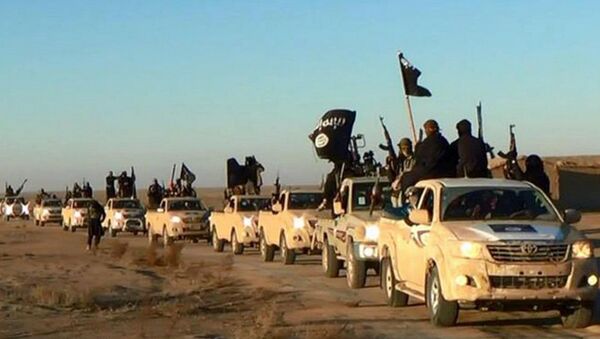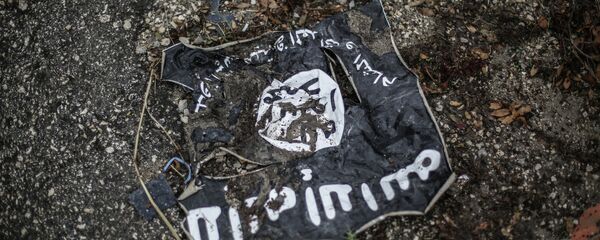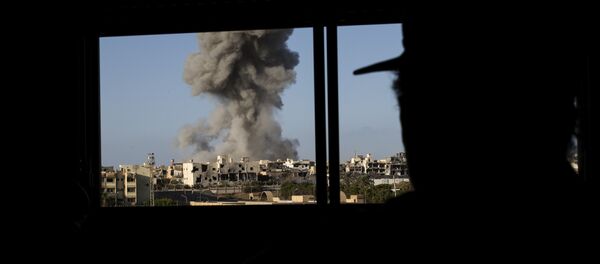The alleged mass grave is in Saadiya, 60 km northeast of Raquba, according to the Diyala Organization for Human Rights.
"Pershmerga forces recently detained an IS fighter who confessed during interrogations" the location of the graveyard, Taleb al Khazrangy said, the group’s leader.
He added that the Pershmerga units have identified the location of the grave, "which will be opened over the coming few weeks after obtaining the required approvals."
"The victims in the grave were executed by Daesh during its control of Saadiya after June 2014," Khazrangy said.
"The information indicate [sic.] that more than 100 civilians are missing in Saadiya, most of them were held by the group in Saadiya," Khazrangy continued.
"We have been coordinating with security troops to identify them," he noted.
Rania Khalek, an American journalist, told Radio Sputnik’s Eugene Puryear of By Any Means Necessary that “rebel” groups in the Syria, which sometimes include Daesh, are "very tyrannical."
Such renegades regularly engage in kidnapping, torturing, and summarily executing individuals “for simply criticizing them on social media,” Khalek said.
On March 22, Human Rights Watch reported that Daesh had set up another mass execution site near Mosul. The bodies of the deceased were thought to belong to Iraq Security Forces, prisoners, and women.
“This mass grave is a grotesque symbol of ISIS’s cruel and depraved conduct — a crime of a monumental scale,” Lama Fakih said, deputy director for Middle Eastern affairs at HRW.




